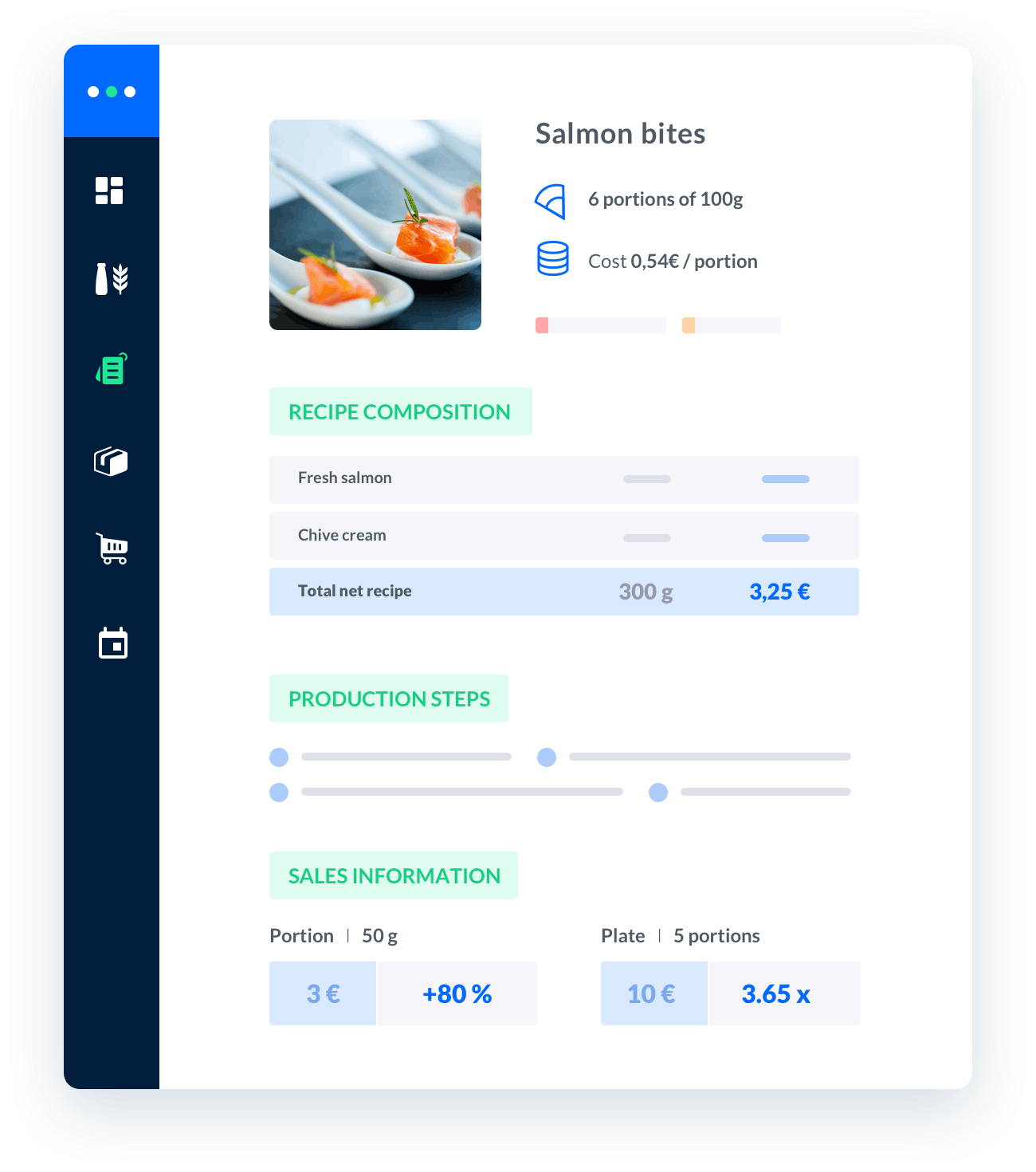importance of dish costing for hospitality businesses
The Importance of Dish Costing for Hospitality Businesses In the dynamic and competitive world of hospitality businesses, managing costs is crucial for long-term success.One area that requires careful attention is dish costing.

Melba: the food cost app to optimize the profitability of your restaurant
Discover how to optimize the profitability of your restaurant with melba

The ultimate guide to food cost restaurant
Learn more about the food cost basis and how to reduce your food cost percentage
The Importance of Dish Costing for Hospitality Businesses
In the dynamic and competitive world of hospitality businesses, managing costs is crucial for long-term success. One area that requires careful attention is dish costing. Understanding the importance of dish costing allows businesses to make informed decisions, optimize profitability, and maintain customer satisfaction. This article explores the significance of dish costing in the context of the catering industry.
1. Enhancing Profitability
Dish costing plays a pivotal role in enhancing the profitability of hospitality businesses. By accurately calculating the cost of each dish, businesses can determine the ideal selling price that covers both the ingredients and overhead expenses, while ensuring a reasonable profit margin. Proper dish costing ensures that businesses do not underprice their offerings, leading to financial losses, or overprice them, deterring potential customers.
1.1 Cost Analysis
Conducting a comprehensive cost analysis helps businesses gain a deeper understanding of the expenses associated with creating a dish. This analysis involves identifying and quantifying the cost of ingredients, including seasonal variations and market prices. Additionally, overhead costs such as labor, utilities, rent, and equipment maintenance should be considered. A thorough cost analysis enables businesses to make informed decisions regarding menu pricing and cost control measures.
1.2 Menu Engineering
Dish costing enables businesses to engage in menu engineering, a strategic approach to maximize profitability by optimizing the menu mix. By analyzing the cost and popularity of each dish, businesses can identify high-profit items and promote them effectively. Menu engineering also involves identifying low-margin items that may need to be reevaluated or removed from the menu. This process helps streamline operations, reduce waste, and increase overall profitability.
1.3 Identifying Cost Saving Opportunities
Accurate dish costing facilitates the identification of cost-saving opportunities, allowing businesses to optimize their operations. By analyzing ingredient costs, businesses can explore potential alternatives or negotiate better prices with suppliers. Additionally, understanding the labor costs associated with each dish can help identify areas for efficiency improvement, such as streamlining preparation processes or cross-utilizing ingredients. These measures contribute to cost reduction and improved profitability.
2. Ensuring Customer Satisfaction
Dish costing is essential for ensuring customer satisfaction in hospitality businesses. It enables businesses to maintain consistent quality, offer competitive prices, and meet customer expectations.
2.1 Consistent Quality
Accurate dish costing allows businesses to maintain consistent quality across their offerings. By determining the appropriate portion sizes and ingredient quantities, businesses can ensure that each dish meets the desired standards. Consistency in quality enhances customer satisfaction, as patrons can rely on the hospitality establishment to deliver the same level of taste and presentation consistently.
2.2 Competitive Pricing
Dish costing helps businesses establish competitive pricing strategies. By considering both cost and market factors, businesses can set prices that align with customer expectations and industry standards. Appropriate pricing attracts customers, especially when they perceive value for money. Competitively priced dishes contribute to customer satisfaction and encourage repeat business.
2.3 Meeting Customer Expectations
Understanding dish costing allows businesses to meet customer expectations in terms of quality, portion sizes, and pricing. By accurately pricing dishes, businesses can avoid overcharging customers, ensuring a positive dining experience. Moreover, businesses can cater to different customer preferences, such as dietary restrictions or ingredient preferences, without compromising profitability. Meeting customer expectations fosters loyalty and positive word-of-mouth, benefiting the overall reputation of the hospitality business.
In conclusion, dish costing is of utmost importance for hospitality businesses. It enables businesses to enhance profitability, make informed decisions, and maintain customer satisfaction. By conducting comprehensive cost analyses, engaging in menu engineering, and identifying cost-saving opportunities, businesses can optimize their operations and maximize profitability. Furthermore, accurate dish costing ensures consistent quality, competitive pricing, and the ability to meet customer expectations. The implementation of effective dish costing practices contributes to the long-term success and growth of hospitality businesses.






